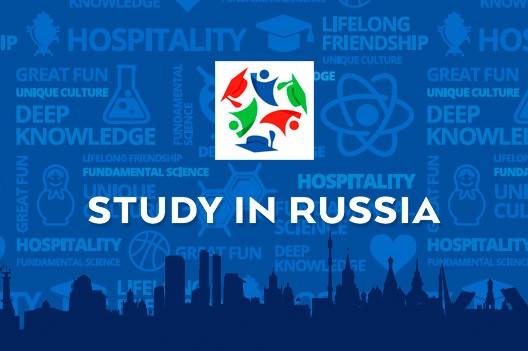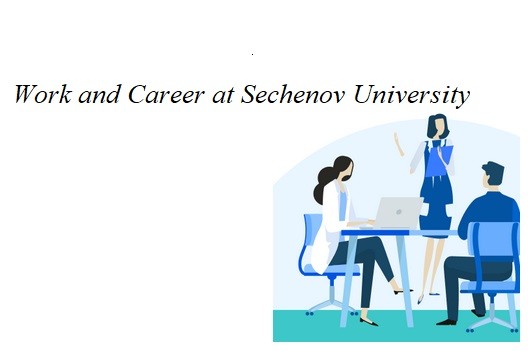-
About University
- Mission & Brand Strategy
- University Leadership
- Rector's Welcome
- History
- Regulatory Documents
- Contacts
- Staff
- International Recruitment
- Partners
Applicants- Why Sechenov University
- Degree Programmes in English
- Preparatory Courses
- Non-Degree Programmes
- Transfer from other Institutions
29.04.2021Pulmonologists discuss coronavirus treatment and consequences
Sechenov University’s leading doctors and scientists participated in the online conference ‘Pulmonology and COVID-19’ on 14 April 2021. This event was organised with the support of the Italian-Russian Forum-Dialogue of Civil Society (Forum-Dialogo Italo-Russo della Società Civile).
The meeting attracted some outstanding specialists in the field, including Sergey Avdeev (Sechenov University); Andrey Yaroshetskiy (Sechenov University); Daniel Munblit (Sechenov University & Imperial College London); Angelo Carfi (Fondazione Policlinico A. Gemelli IRCCS, Rome, Italy); Stefano Aliberti (Fondazione IRCCS Ca’Granda Ospedale Maggiore Policlinico, Milan, Italy & Università degli Studi di Milano, Milan, Italy); Svetlana Rachina (Sechenov University); Luca Richeldi (Fondazione Policlinico A. Gemelli IRCCS, Rome, Italy & Università Cattolica del Sacro Cuore, Rome, Italy); Enrico Clini (University Hospital of Modena, Modena, Italy & University of Modena Reggio Emilia, Modena, Italy).
Andrey Yaroshetskiy, Professor at the Department of Pulmonology (Sechenov University), spoke about respiratory support in COVID-19-related ARDS (acute respiratory distress syndrome) in the ICU (intensive care unit). He highlighted several issues that required the attention of doctors: moderate-to-severe hypoxaemia, impairment of CO2 removal, fatigue, and ‘baby lung’. Prof Yaroshetskiy described the study where his colleagues and he analysed whether all COVID-19 patients really needed intubation and mechanical ventilation. The researchers are currently recruiting patients for an observational trial on non-invasive ventilation; the study is due to run until August 2021.
Sergey Avdeev, Head of the Department of Pulmonology (Sechenov University), focused on non-invasive ventilation in COVID-19 patients outside the ICU. He stressed the differences between the conventional and COVID-19-related ARDS and discussed the potential for aerosol formation in non-invasive ventilation, as well as possible consequences for healthcare workers.
Svetlana Rachina, Head of the Department of Internal Medicine No. 2 (Sechenov University), gave a comprehensive overview of co-infections and superinfections in patients with COVID-19, based on international and local studies. She presented the evaluation of possible tools to distinguish between SARS-CoV-2 pneumonia and bacterial infections and highlighted that over-prescription of antibiotics to patients with COVID-19 is a widespread problem that leads to bacterial resistance.
Daniel Munblit, Professor at the Department of Paediatrics and Paediatric Infectious Diseases (Sechenov University) and Honorary Senior Lecturer at Imperial College London, reported on long-term consequences of COVID-19. Fatigue, dyspnoea, joint pain, and chest pain are frequently observed during the acute phase of the disease but may be present also in the follow-up period, while other symptoms can be seen primarily in the acute phase.
Almost half of patients continue to experience issues even six months after being discharged from hospital. Female sex, asthma, or severe course of the disease may be associated with long-lasting symptoms. In addition, an extended recovery period puts the patients in greater danger of neurological and psychiatric outcomes compared to the general population.
Prof Munblit mentioned the initiatives which aim to study the long-lasting consequences of the infection. He collaborates with ISARIC, the International Severe Acute Respiratory and Emerging Infection Consortium, on their post-COVID-19 research; and works with the Core Outcome Measures for Post-Covid Condition/Long Covid initiative.
Embed on website
Pulmonologists discuss coronavirus treatment and consequences
Sechenov University’s leading doctors and scientists participated in the online conference ‘Pulmonology and COVID-19’ on 14 April 2021. This event was organised with the support of the Italian-Russian Forum-Dialogue of Civil Society (Forum-Dialogo Italo-Russo della Società Civile).
The meeting attracted some outstanding specialists in the field, including Sergey Avdeev (Sechenov University); Andrey Yaroshetskiy (Sechenov University); Daniel Munblit (Sechenov University & Imperial College London); Angelo Carfi (Fondazione Policlinico A. Gemelli IRCCS, Rome, Italy); Stefano Aliberti (Fondazione IRCCS Ca’Granda Ospedale Maggiore Policlinico, Milan, Italy & Università degli Studi di Milano, Milan, Italy); Svetlana Rachina (Sechenov University); Luca Richeldi (Fondazione Policlinico A. Gemelli IRCCS, Rome, Italy & Università Cattolica del Sacro Cuore, Rome, Italy); Enrico Clini (University Hospital of Modena, Modena, Italy & University of Modena Reggio Emilia, Modena, Italy).
Andrey Yaroshetskiy, Professor at the Department of Pulmonology (Sechenov University), spoke about respiratory support in COVID-19-related ARDS (acute respiratory distress syndrome) in the ICU (intensive care unit). He highlighted several issues that required the attention of doctors: moderate-to-severe hypoxaemia, impairment of CO2 removal, fatigue, and ‘baby lung’. Prof Yaroshetskiy described the study where his colleagues and he analysed whether all COVID-19 patients really needed intubation and mechanical ventilation. The researchers are currently recruiting patients for an observational trial on non-invasive ventilation; the study is due to run until August 2021.
Sergey Avdeev, Head of the Department of Pulmonology (Sechenov University), focused on non-invasive ventilation in COVID-19 patients outside the ICU. He stressed the differences between the conventional and COVID-19-related ARDS and discussed the potential for aerosol formation in non-invasive ventilation, as well as possible consequences for healthcare workers.
Svetlana Rachina, Head of the Department of Internal Medicine No. 2 (Sechenov University), gave a comprehensive overview of co-infections and superinfections in patients with COVID-19, based on international and local studies. She presented the evaluation of possible tools to distinguish between SARS-CoV-2 pneumonia and bacterial infections and highlighted that over-prescription of antibiotics to patients with COVID-19 is a widespread problem that leads to bacterial resistance.
Daniel Munblit, Professor at the Department of Paediatrics and Paediatric Infectious Diseases (Sechenov University) and Honorary Senior Lecturer at Imperial College London, reported on long-term consequences of COVID-19. Fatigue, dyspnoea, joint pain, and chest pain are frequently observed during the acute phase of the disease but may be present also in the follow-up period, while other symptoms can be seen primarily in the acute phase.
Almost half of patients continue to experience issues even six months after being discharged from hospital. Female sex, asthma, or severe course of the disease may be associated with long-lasting symptoms. In addition, an extended recovery period puts the patients in greater danger of neurological and psychiatric outcomes compared to the general population.
Prof Munblit mentioned the initiatives which aim to study the long-lasting consequences of the infection. He collaborates with ISARIC, the International Severe Acute Respiratory and Emerging Infection Consortium, on their post-COVID-19 research; and works with the Core Outcome Measures for Post-Covid Condition/Long Covid initiative.



